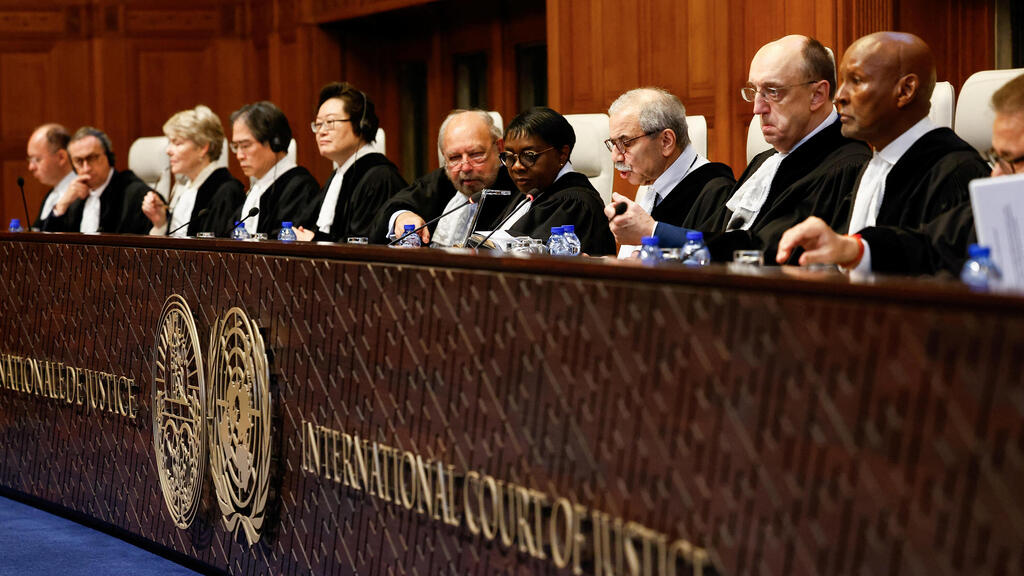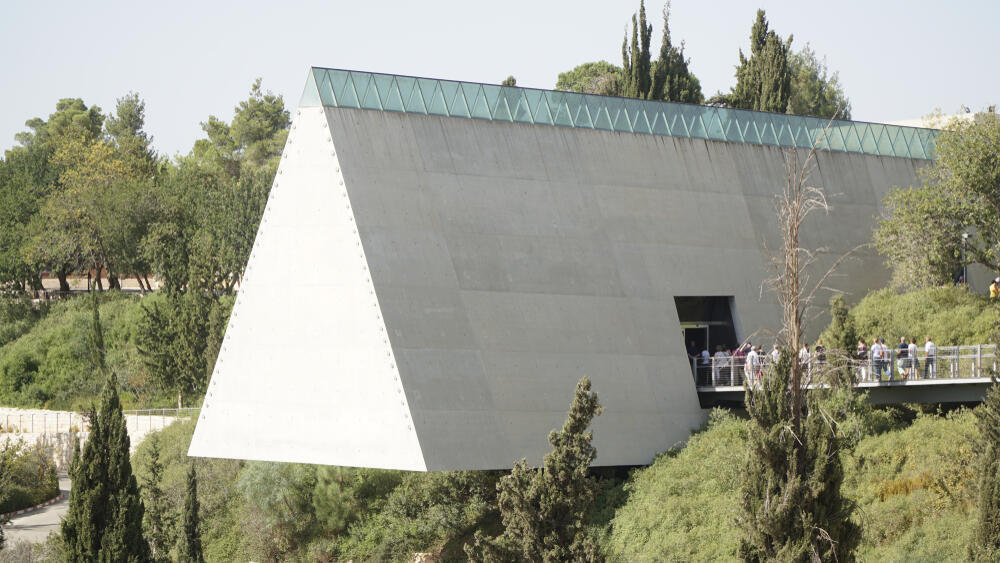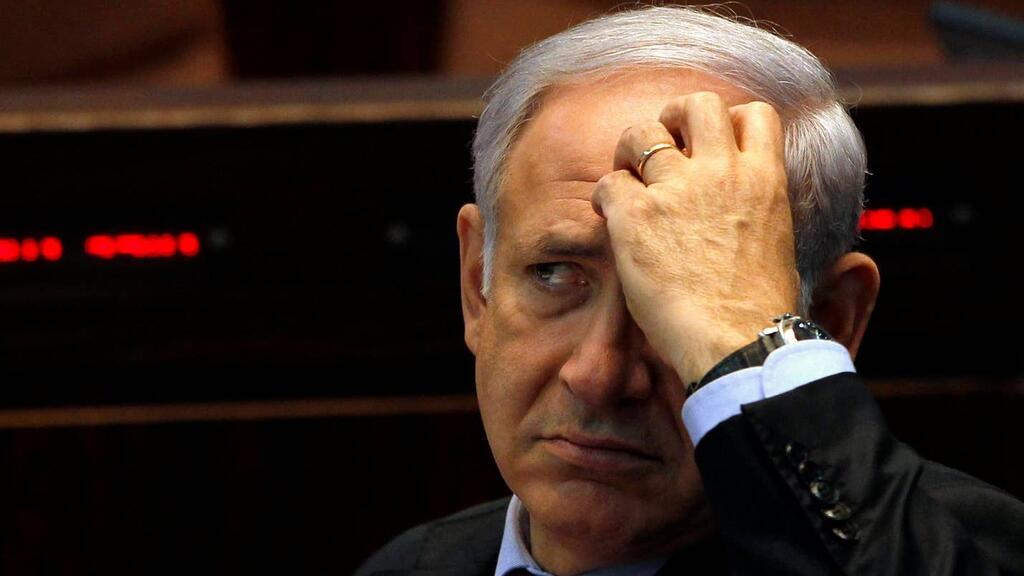Getting your Trinity Audio player ready...
Armenian ears perked up over the weekend when Benjamin Netanyahu criticized Turkey for not recognizing the Armenian Genocide by the Ottomans a century ago. After all, Israel itself has withheld recognition for reasons that frustrate Armenians, who see themselves as fellow travelers of the Jews. Is change afoot at last? Naïve as it may sound, I urge the answer be yes.
More stories:
Of course, I understand the context, and the word for it is realpolitik: the subordination of ethics, ideals and principles to concrete interests and calculation of outcomes. Israel has not recognized the Armenian Genocide for fear of offending Turkey, a populous NATO member that has been a trade partner and a tourism destination.
5 View gallery
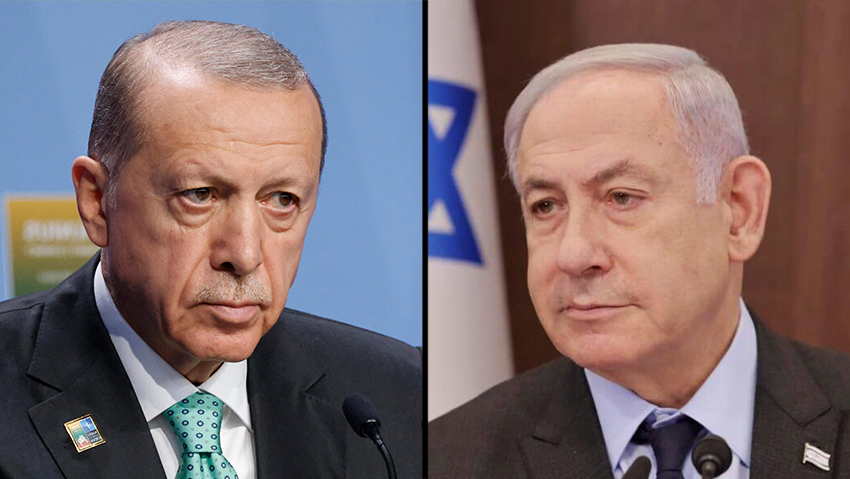

Recep Tayyip Erdogan, Benjamin Netanyahu
(Photo: Ludovic MARIN / AFP, Marc Israel Sellem)
Netanyahu seems to be pivoting because Turkish President Recep Tayyip Erdogan strongly supports Hamas. Not only has he no appreciation for the massacre Hamas perpetrated on Oct. 7, but he accuses Israel itself of genocide and on Saturday compared Netanyahu to Hitler.
“Turkey is a country that speaks openly with Hamas leaders and firmly backs them,” Erdogan said on Saturday. “Netanyahu and his administration, with their crimes against humanity in Gaza, are writing their names next to Hitler, Mussolini, and Stalin, like today’s Nazis.”
Then came Netanyahu’s tweet: “Israel, which adheres to the laws of war, will not accept moral preaching from Erdogan, who supports murderers and rapists of the terrorist organization Hamas, denies the Armenian Holocaust, massacres Kurds in his own country and eliminates regime opponents and journalists.”
Whatever the rights and wrongs of the Gaza War, the fact is that at the International Court of Justice at the Hague in January, Israel found itself accused of genocide in Gaza. Israel’s defense rested largely on one word: intent. Israel says its goal is to remove Hamas from power in Gaza, and not to kill Palestinian civilians. It argues that intent, and lack of it, is critical in determining whether an action is a genocide.
The 1951 Convention on the Prevention and Punishment of the Crime of Genocide defines genocide, inter alia, as being killings and other acts “committed with intent to destroy, in whole or in part, a national, ethnical, racial or religious group.”
That convention was adopted primarily because of two major genocides that shocked the world in the first half of the 20th century. The first was the murder of 1.5 million Armenians by the Ottomans during World War I. It was a campaign of death marches to the Syrian desert and into concentration camps, and a project to eradicate Armenians that featured confiscations and sexual violence and forced Islamization.
Our tragedy deeply affected the Polish-Jewish lawyer Raphael Lemkin, who coined the term genocide in 1944 – at the high of the Holocaust, the systematic murder of 6 million Jews by the Nazis. Two years later the nascent United Nations recognized genocide as a crime under international law, and then came the convention.
Over 30 countries around the world have recognized the Armenian Genocide as such – but Israel is not one of them. Withholding that recognition has been a sore point in relations that should have been close – because Armenians have a history of standing up for Jews and seeking to protect them.
We are proud that at Yad Vashem, many Armenian names are listed among the righteous who risked their lives to save Jews during the Holocaust. No other nation in the wider Middle East comes even close. The Armenian church has a proud and long history in the Holy Land as well, and has always sought good relations.
Israel, meanwhile, has developed an alliance with Azerbaijan, Armenia’s hostile neighbor to the east. Israel sells Baku drones and other weapons (which have been used against us), buys oil from its despotic regime, and thus enjoys access to the Iranian border too.
Unfortunate though that alliance is from our perspective, Azerbaijan’s issue is not the genocide by Turkish cousins from a century ago; it has been more interested in perpetrating its own ethnic cleansing against 120,000 Armenians in Nagorno-Karabakh just last September.
The main impediment for Israeli recognition of our genocide has been Turkey, which vehemently denies the genocide, fearing that acknowledgment would lead to demands for reparations. Israel, seeking to maintain diplomatic ties and military cooperation with Turkey, has rather meekly complied. That figurative ship appears to have decisively sailed in recent months. Erdogan is a friend of Hamas and not of Israel.
We understand very well that Netanyahu is using the genocide issue as a cudgel against the increasingly belligerent Turkish leader. But there is a wider picture as well. Israel is rather isolated in the world right now. It doesn’t need more cynicism and scheming from its prime minister. Rather, now would be a great time to do the right thing.
There is a realpolitik argument for this, for those who need it. U.S. President Joe Biden, who recognized the genocide two years ago, would undoubtedly be pleased – which would help ease the rift with the US administration. Moreover, Turkey's influence in the region has waned in recent years, while Israel's relations with other regional actors, such as Greece and Cyprus, have strengthened.
But realpolitik, though often hailed as a pragmatic and realistic approach to international relations, has a dark side. It can involve excruciating moral compromise and result in alliances with oppressive regimes, turning a blind eye to human rights abuses. Such actions undermine the credibility of nations and tarnish their reputation. They start standing for cynicism and hypocrisy.
5 View gallery
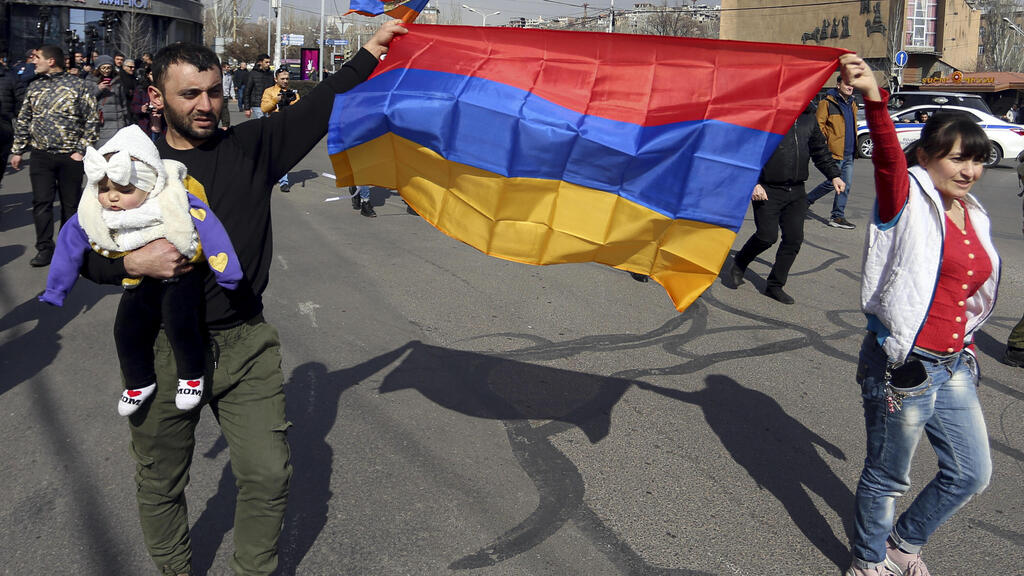

Civilians waving the Armenian national flag in the streets of the capital Yerevan
(Photo: AP)
As a nation founded on the principles of justice, human rights, and remembrance of historical injustices, Israel has a moral obligation to recognize the Armenian Genocide, which is deemed by an overwhelming majority of scholars and experts as a historical fact. The denial of our genocide undermines the global fight against genocide denial and impunity.
By taking a principled stand and acknowledging the Armenian Genocide, Israel can demonstrate its commitment to universal values and strengthen its moral standing in the international community – at a time when that standing is being questioned.
So Netanyahu should do more than fire off a tweet. He should follow in Biden’s footsteps. The time for Israel to recognize the Armenian Genocide is now. It would be a fitting reply to Erdogan.
- Grigor Hovhannissian is the former Armenian Ambassador to the United States and to Mexico, and the former Deputy Foreign Minister of Armenia.



